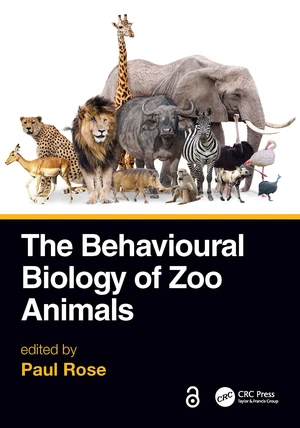"Zoo animals" as a population are a diverse array of species from all around the globe. When managed in captivity, it is important that key aspects of natural ecology are factored into animal care, as well as considerations relating to welfare, life history and behavioural needs. The Behavioural Biology of Zoo Animals is the first book on captive animal behaviour and how this applies to welfare. The book enables all aspects of zoo husbandry and management (nutrition, enclosure design, handling and training, enrichment, population management) to be based on a sound knowledge of the species, its evolutionary history and its natural history. Chapters from expert authors cover a vast range of taxa, from primates and elephants to marine mammals and freshwater fish, to reptiles, birds and invertebrates. A final part looks to the future, considering animal health and wellbeing, the visitor experience and future visions for zoos and aquariums. For on-the-ground practitioners as well as students of zoo biology, animal science and welfare, this book provides an explanation of key areas of behavioural biology that are important to fulfilling the aims of the modern zoo (conservation, education, research and recreation). It explains how evidence from the wild can be implemented into captive care to support the wider aims of the zoo, shedding light on the evidence-based approaches applied to zoo biology and animal management. Chapter 3 is available to download Open Access on the www.taylorfrancis.com website under a Creative Commons Attribution-Non Commercial-No Derivatives 4.0 license. Aa Companion Website with additional resources is freely available for all at www.bbzabook.wordpress.com and you can follow the book on Instagram at @bbza_book.
Price history
Dec 12, 2022
€64.79

